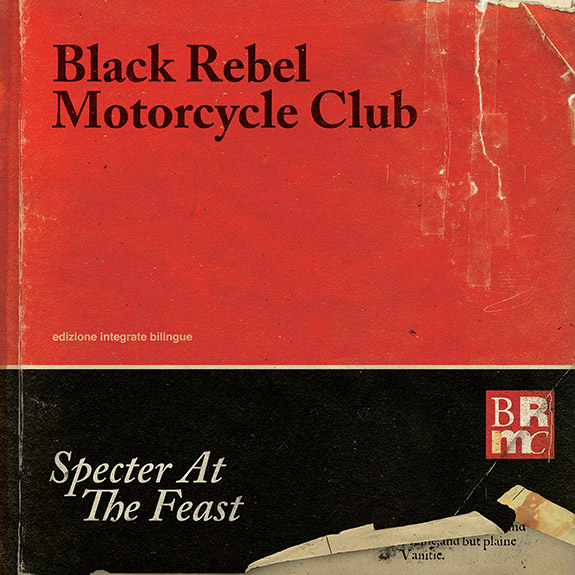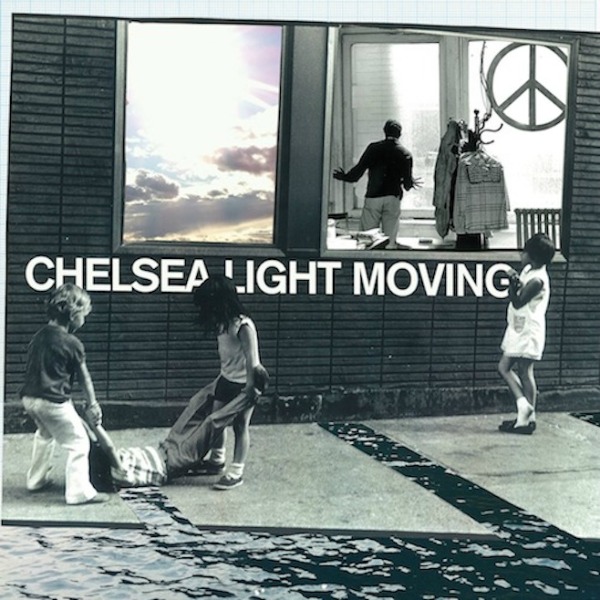The Strokes continue their mastery of the rock song
| Socialize: |
By NICK TAVARES
STATIC and FEEDBACK Editor
I remember the spring of 2001 so clearly. Specifically, I was usually sitting at my desk, sifting through alternating bouts of frustration over a grey, rainy a weather pattern that wouldn’t quit and juggling papers in five different classes I’m not entirely sure I understood on the back end of my freshman year of college.
And in that time, I started to come out of my self-imposed moratorium on new music by new bands. I was beginning to be less cynical on what was being created and thrust onto eager listeners, more willing to seek out new sounds from new artists.
The Strokes, of course, were the flagship band of that era, the new sound out of New York City that was expected by some, or most I suppose, to sweep away the banal din of prefabricated pop music and return rock and roll to the grimy clubs where it belongs. I remember reading an article on Audiogalaxy, a long-gone music sharing site that was one of many to make blood shoot from the collective ears of the RIAA, that recapped up a recent New York City show, complete with singer Julian Casablancas’ shout of “No encores!” at the close of a scorching 45-minute set.
That was the Strokes of 12 years ago: mystery couched in the thinly veiled hope of being world savers, with fans waiting for an album that would topple the globe the way Nevermind had a decade earlier.
I have no idea if that’s how they saw themselves, but if it is, they’ve done an excellent job of hiding it.
Instead of answering the bell in an attempt to meet these insurmountable and unclear expectations, the Strokes came on the scene with a debut album, Is This It, that was punky, tough, concise and showed a clear understanding of how a rock song works, and how those songs work together on a record. And now, 13 years later, they’re still a band with a singular focus and determination that, if it isn’t unique, it’s certainly rare among the ever-shrinking stable of rock bands who are expected to sell more than a few copies of their records.
It’s hard not to bring all this baggage to Comedown Machine, the Strokes’ fifth full-length record, if only because the Strokes themselves have had all this auxiliary nonsense floating around them in reviews and interviews for so long. But it’s sifting through that baggage that makes Comedown Machine even more rewarding. It’s the knowledge that the celebrity and expectations that have followed them from almost the minute they formed have not led to them changing that much, except for the obvious growth they’ve displayed from album to album.
Listen to the frantic tone in Casablancas’ voice in “50/50” He ratchets between barely contained calm and desperate screams into the chorus while the band pounds away at another repetitive figure that’s heavy on the rhythm, burrowing its way into listeners ears to the point that, if the song were 15 minutes instead of 2:43, it would feel totally welcome and natural.
Of course, the Strokes don’t write 15 minute songs. They’ve honed their art into shorter blasts of brilliance that share as much with the Cars as it does the Ramones and, before them, the Beach Boys. They just navigate this form in their own style that takes as much from 80s-era pop as it does 70s punk and 60s garage nuggets.
They’re a band that can have fun; go no further than the opener “Tap Out” or “Chances” for that. They can slow it down to get their point across, a la “80s Comedown Machine” or “Slow Animals.” And they can turn it up, the way they do on “Welcome to Japan” and so many others.
All these little exercises within the genre are more than just musical weightlifting. It’s evidence of a band that can navigate all these textures and sounds. Better than just being experts, they’re experts with something to say, and they say it in a voice that is clearly theirs.
The absurd storyline of Is This It being a disappointment, or some sort of beacon of change to follow, was always confusing and unnatural. The band that recorded that album was bursting with songs and talent and edge, and the only common thread was that one of limitless potential. The band that, 12 years later, has recorded Comedown Machine is one that is well seasoned, confident and not the least bit cautious. This is the sound they’ve pursued, this is the noise they want to make. The fact that they were able to get there is a triumph of art.
The world wanted the second-coming of the Ramones or Nirvana, perhaps. They’ve had to settle for a great band with no shortage of groove; a band not concerned with encores; a band that is only interested in making their music. Those who are forever disappointed and moaning should stop and realize how good they have it.
E-mail Nick Tavares at nick@staticandfeedback.com




